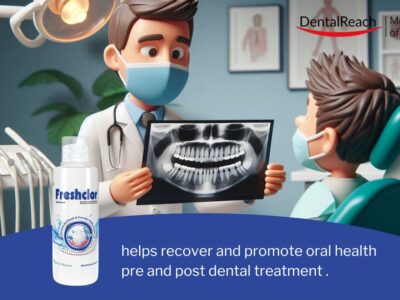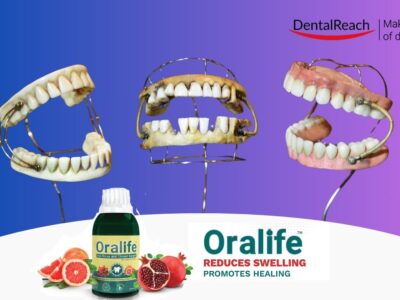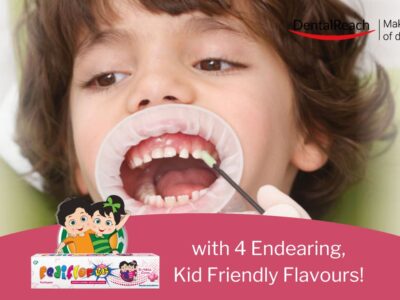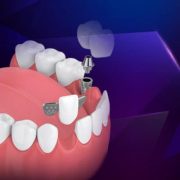If you are a dentist, you can share these tips with your patients by telling them verbally/handing them a print out of this article/ simply sharing the browser link with them. If you are a patient, please continue reading!

Gums are an important part of our oral health, as they help support and protect our teeth. But just like our teeth, gums can be prone to problems like inflammation, infection, and even gum disease if they're not properly cared for.
So how can your patients keep their gums healthy and strong? In this article, we'll go over 10 dental care tips to help maintain great gums.
1. Brush your teeth twice a day – along with your tongue!
Brushing your teeth twice a day is an essential part of maintaining healthy gums. By removing plaque and bacteria from the surface of your teeth and gums, brushing helps prevent gum disease and other oral health problems. Brush for at least two minutes each time, using a fluoride toothpaste and a soft-bristled toothbrush . Also, don’t forget to brush your tongue. This removes remaining bacteria and freshens your breath, which can be beneficial for your gums. Use a tongue scraper, the textured surface of the backside of your toothbrush or a soft-bristled toothbrush to clean your tongue.
2. Floss daily.
Flossing is another important part of maintaining healthy gums. By removing plaque and food particles from between your teeth and along the gumline, flossing helps prevent gum disease and other oral health problems. Encourage your patients to floss at least once a day, using a gentle back and forth motion and taking care to floss between all of their teeth. You may also use devices like water flossers as it requires less manual dexterity.
3. Use mouthwash.
Mouthwashes may help kill bacteria and freshen your breath, which can be beneficial for your gums. Use mouthwash as part of your oral hygiene routine, either in addition to or instead of flossing. For maximum effect, rinse for a minimum of 30 seconds. If you have an existing gum disease, the dentist may prescribe specialised mouthwashes like peroxide or gum paints. Please be careful to not over use these and stick to the time duration prescribed by your dentist.
4. Avoid tobacco.
Tobacco use can increase the risk of gum disease and other oral health problems. Encourage your patients to avoid tobacco products, including cigarettes, chewing tobacco, and e-cigarettes, to help protect their gums and overall oral health.
5. Eat a healthy diet.
A healthy diet can help support healthy gums and teeth. Eat a variety of fruits, vegetables, and lean proteins, and to limit their consumption of sugary and acidic foods and drinks.
6. Drink plenty of water.
Drinking water can help flush away food particles and bacteria from your mouth, which can be beneficial for your gums. So, drink plenty of water throughout the day, especially after meals.
7. Avoid mouth breathing
Mouth breathing is a habit developed when patients cannot breathe through their nose. It can occur because of consistent blocked nose, sinusitis, enlarged tonsil or adenoids, nasal polyps or growths, deviated nose septum etc. Mouth breathing can dry out and damage your gums. In addition, it can cause facial structural changes and sleep disorders. Be aware of this habit and speak to your dentist if you suspect you may be mouth breathing.
8. Get regular dental check-ups.
Regular visits to the dentist are an important part of maintaining healthy gums. During these visits, your dentist will check for signs of gum disease, such as inflammation, redness, and bleeding, and provide treatment as needed. Visit the dentist every six months and complete the appointment with a routine cleaning twice a year. You may need frequent or lesser scaling in a year, depending on your tendency to put on tartar, oral care regimen and whether you are additionally an orthodontic case.
9. Certain medicines may affect your gums.
Some common medications can cause problems with periodontal health include:
- Antacids
- Antihistamines
- Antidepressants
- Blood pressure medications
- Decongestants
- Pain relievers
Certain, not all, medicines belonging to these groups, may either cause dry mouth or excessive gingival growth in some patients. Be sure to give you dentist a proper history of medication use and if suggested by him/her, you may have to discuss with your physician to use alternative medicines of the same group.
10. Use a humidifier.
If you live in a dry or air-conditioned environment, or even in constant-heater using places, using a humidifier can help keep gums and mouth moist and healthy. Use a humidifier in your home or office to help prevent dry mouth and keep gums hydrated.
By following these 10 dental care tips, your patients can help maintain healthy gums and a beautiful smile. Encourage them to take an active role in their own oral hygiene and visit the dentist regularly to get the most out of their dental care.




















Comments